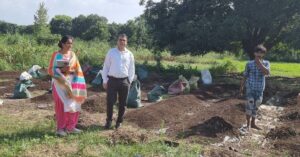Rs 5 Lakh to 50 Lakhs: Haryana Engineer Scripts Success in Zero-Budget Natural Farming!
For Rakesh, this method of farming was as good as finding a genie! From the profits earned in the very first year itself, he hired 20 labourers. Today, besides providing them with food and accommodation, he sponsors the education of their children.
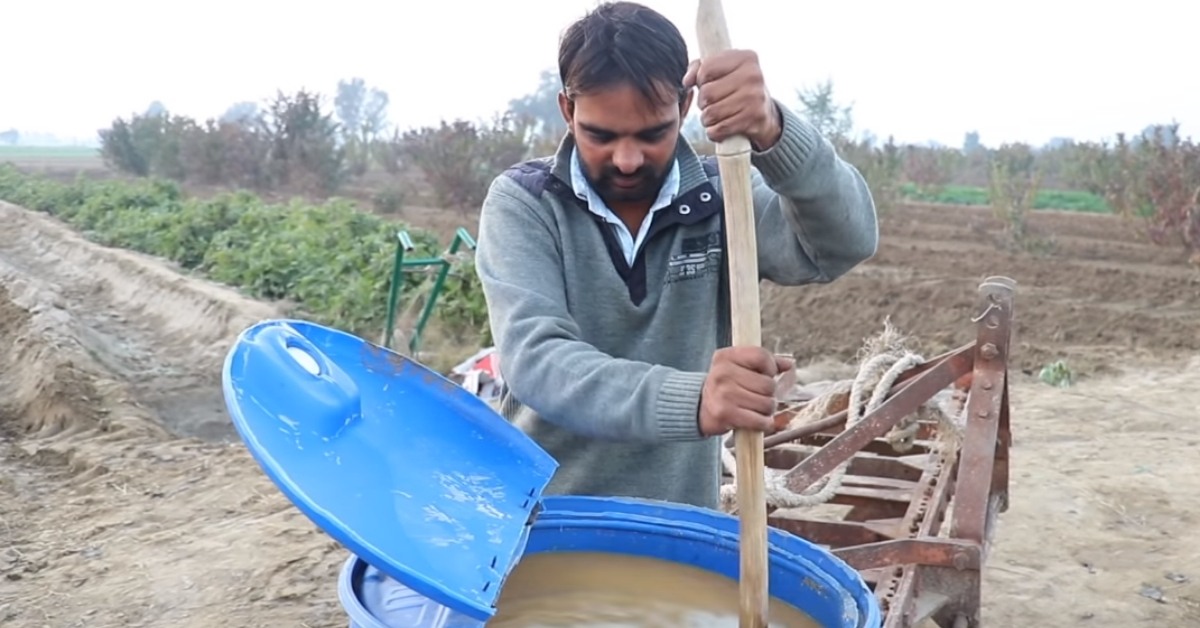
Growing up in Haryana’s Baijalpur village, Rakesh Sihag was never keen on following his father’s footsteps. He preferred securing a stable job over working in a farm, so, after passing out of high school, he moved to Ambala to pursue a diploma in Civil Engineering.
Today, Rakesh can be seen grazing the cows in his nine-acre field at 6 in the morning. Two hours later he walks back to his house to have his favourite meal of the day. It is the only meal he can have in leisure with his 2-year-old daughter, Rishita.
Once that is done, the father and daughter duo go for a walk in the lush green fields.
“Rishita loves spending time amidst the crops, cows and compost. At times, she likes to dirty her hands and pretend as if she is getting the work done,” says Rakesh to The Better India over a phone interview as he bids adieu to her.
He then convenes his daily meeting to know the progress of his veggies. In the meeting, Rakesh once again reminds himself and the newly appointed labourers about storing the cow urine in a cool place and collecting the fresh cow dung in the containers.
Rakesh spends his entire day working on the farm, and this has been his schedule for the last three years. “I have dedicated my life to farming,” he says.
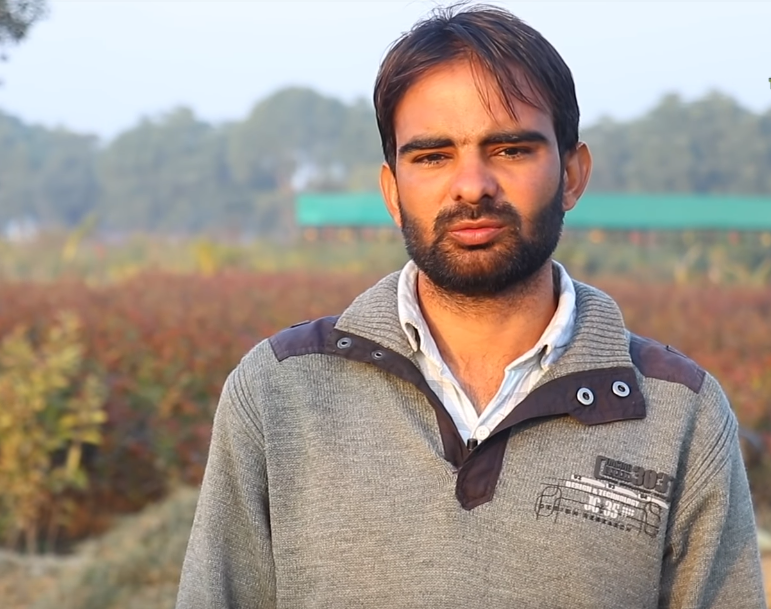
How did the switch happen?
Rakesh had started working with a private firm after completing his diploma, and continued in the industry for three years. In 2016, when his family was going through financial troubles, Rakesh decided to quit his job.
“Earning 40,000 per month was sufficient until my father fell ill and my elder brother faced an issue in his professional life. There came a point when we were unable to even afford my younger brother’s school fees,” says Rakesh.
Along with his uncle and brothers, he started a nursery in the land and planted close to 70,000 saplings.
But, instead for opting for conventional methods of farming, he opted for Zero Budget Natural Farming (ZBNF).
“We didn’t have enough money to purchase fertilisers and pesticides from the market. I started to look at budget-friendly farming options, and that is when I came across the concept of ZBNF. It was more out of obligation than choice.”
This technique of farming significantly improved both the family’s financial condition and the health of their agricultural land. For Rakesh, ZBNF was as good as finding a genie!
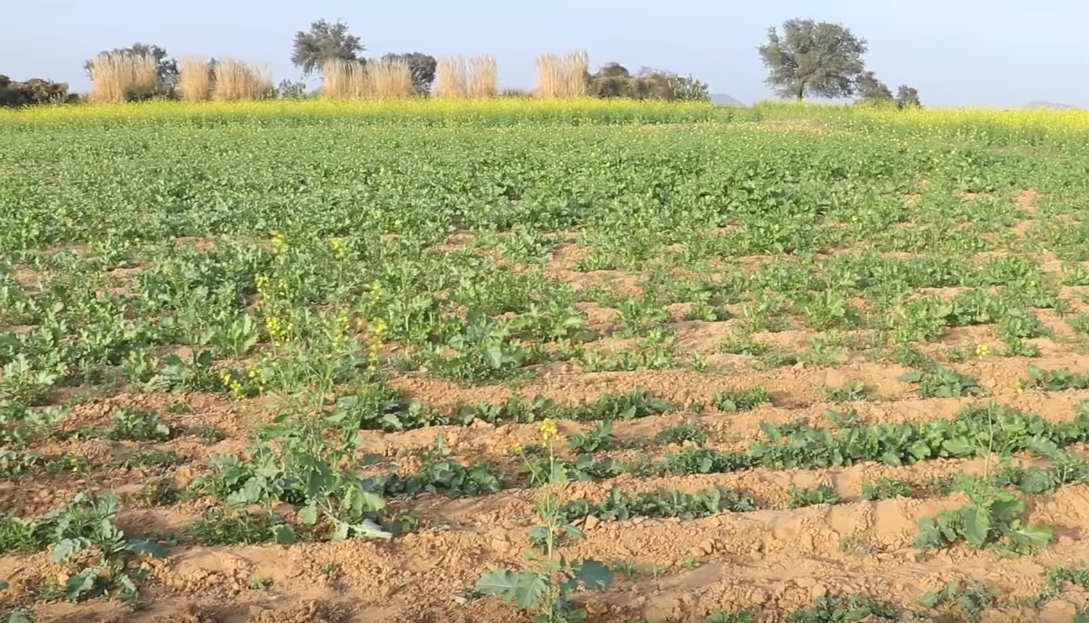
So, what exactly is Zero Budget Natural Farming (ZBNF)?
The brainchild of Subhash Palekar, ZBNF is a farming practice which believes in natural growth of crops without adding any fertilisers and pesticides or any other foreign elements. It requires almost no monetary investment, and chemicals are replaced with biological pesticides like cow dung, cow urine, jaggery and pulse flour for crop protection.
Mr Palekar, a recipient of Padmashri, found his study that an acre of land requires 10 kilograms of local cow dung per month. Since the average cow gives 11 kilograms of dung a day, dung from one cow can help fertilise 30 acres of land.
Explaining the concept further, Rakesh says, “Cows help us complete the farming circle. While the cows help in grazing, their waste (urine and dung) is used to coat the seeds. This is the beejamrutham process. Meanwhile, jeevamrutham, which is a mix of cow dung, cow urine, jaggery and flour is used to increase the microbes in the soil.”
To protect the plants from pest attacks, Rakesh uses a concoction of lilac and chillies.
Apart from retaining soil fertility, ZBNF also helps in lowering the cost input, thus increasing the income of farmers.
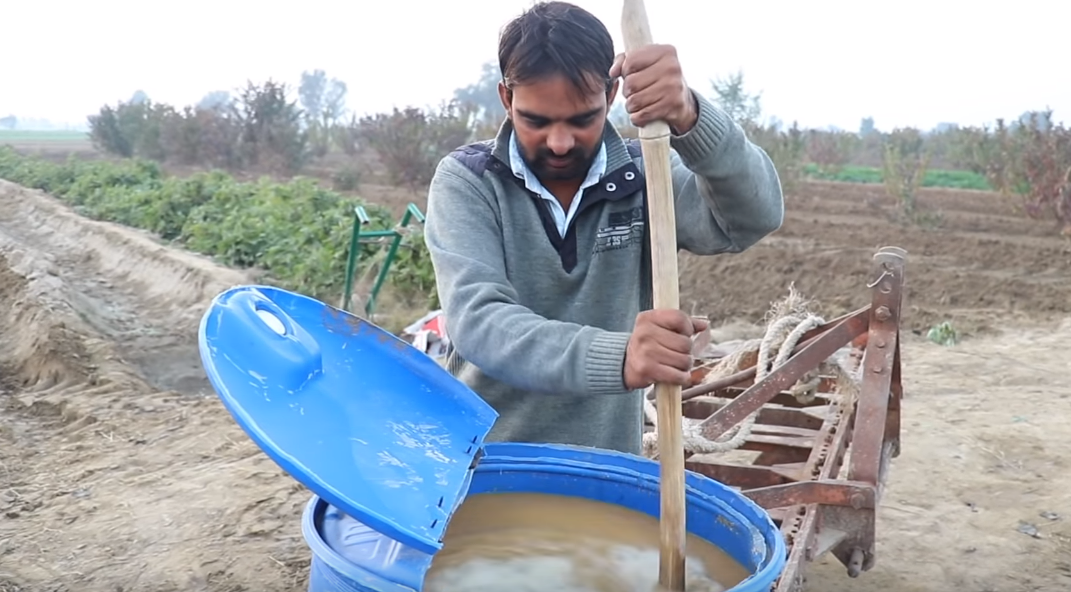
The profits in the very first year, pushed Rakesh to adopt this technique in rest of their farmable land. “We grow all kinds of fruits and vegetables in our land now and the produce is sold to farmers and private players,” he says.
Rakesh also practices multi-layer farming to judiciously utilise soil and water resources in the available land. Under this method, various types of crops of varying height and rooting pattern are cultivated together. Multilayer cultivation occupies space horizontally and vertically.
Also Read: Trans People in This Karnataka Village Are Farming Their Way Out of Exploitation
“The accelerated cultivation process gives higher yields, and it also has the ability to produce crops year-round. We started multilayering last year, and our crop quality has been consistent since then,” says Rakesh.
Thanks to ZBNF and multilayer farming, Rakesh and his family were able to earn an annual profit of Rs 40 lakh in 2017.
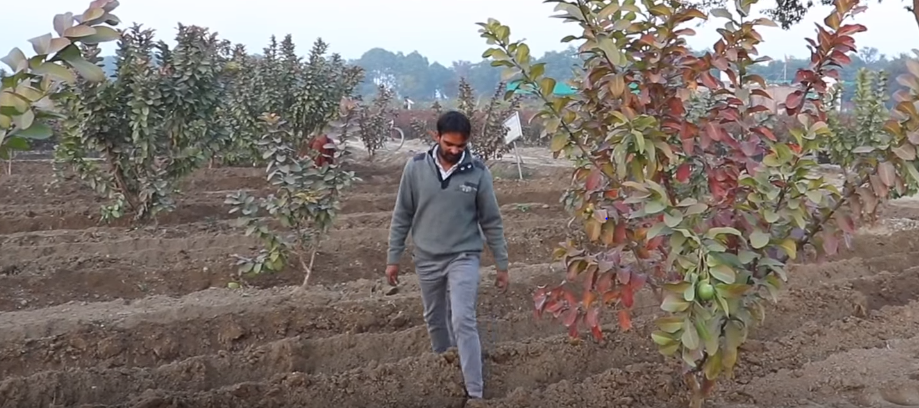
From the profits earned, Rakesh hired 20 local labourers. Today, the workers, including five women, now have a permanent job with a monthly salary of Rs 9,000 and besides providing them with food and accommodation, he claims that he sponsors the education of their children.
In 2018, Rakesh made a profit of 50 lakh, and this year, he is looking to reach the one crore figure. “It does not matter which profession you choose; hard work is all that matters at the end,” he says.
We ask him what is the one thing he would like to tell people who want to enter the agricultural industry but are skeptical about it.
“At one point even I had my doubts. Seeing the plight of farmers around the country, and reading about farmer suicides also made me question if this profession was suitable to lead a decent life. However, today, I can confidently say that the youth can, and should, choose agriculture. There are numerous government schemes and farming methods available. All one has to do is proper research followed by an efficient execution,” Rakesh concludes.
Note: Source of all Images: Youtube
(Edited by Gayatri Mishra)
Like this story? Or have something to share?
Write to us: [email protected]
Connect with us on Facebook and Twitter.
If you found our stories insightful, informative, or even just enjoyable, we invite you to consider making a voluntary payment to support the work we do at The Better India. Your contribution helps us continue producing quality content that educates, inspires, and drives positive change.
Choose one of the payment options below for your contribution-
By paying for the stories you value, you directly contribute to sustaining our efforts focused on making a difference in the world. Together, let's ensure that impactful stories continue to be told and shared, enriching lives and communities alike.
Thank you for your support. Here are some frequently asked questions you might find helpful to know why you are contributing?


This story made me
-
97
-
121
-
89
-
167




